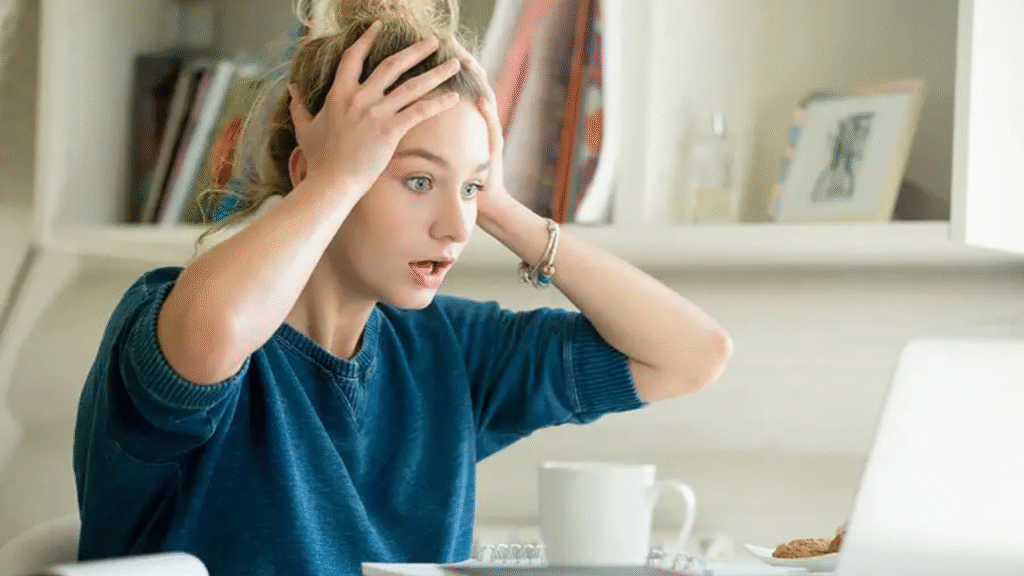Yvette Amos: The Viral Sensation Who Took the Internet by Surprise

In the fast-paced world of digital media, where viral fame can arrive overnight, Yvette Amos stands as a prime example of how one brief moment can catapult a relatively unknown individual into the global spotlight. Her rise to internet fame didn’t stem from a blockbuster film, hit song, or political statement—it came from a seemingly ordinary appearance on a Zoom broadcast. However, that moment was anything but ordinary.
Yvette Amos became a trending name after a BBC Wales news segment where she spoke about the challenges of job hunting during the COVID-19 pandemic. Yet, it wasn’t her message that went viral—it was her background. Inadvertently, a risqué item on a shelf behind her caught the attention of viewers, sparking a storm of social media reactions, memes, and think-pieces.
Her story highlights the strange, unpredictable nature of internet virality. It underscores how digital platforms can amplify even the smallest details, transforming them into cultural talking points. But who is Yvette Amos beyond the viral clip? What does her story tell us about media culture, remote work, and public scrutiny in the digital age? This article delves deep into the life, background, and aftermath of her sudden fame, offering insights into the broader implications of being unexpectedly thrust into the spotlight.
The Viral Zoom Moment
The moment that turned Yvette Amos into an internet sensation came during a BBC Wales news segment in early 2021. Like many others during the pandemic, she joined the interview remotely via Zoom to discuss the effects of COVID-19 on employment opportunities. Her tone was serious, and her message sincere—but viewers noticed something else. In the background, among a collection of books and typical home office clutter, stood an unmistakably adult object displayed on a shelf. The accidental inclusion led to a viral uproar.
Screenshots of the interview spread like wildfire across Twitter, Reddit, and Facebook. Comments ranged from humorous disbelief to genuine support for Amos, who many believed was unfairly scrutinized for a small, unintentional detail. The scene became the subject of endless memes, GIFs, and viral TikToks. Social media platforms buzzed with humorous captions, and Amos’ name trended across regions.
What made the moment resonate wasn’t just the object itself, but how relatable the situation felt. Millions of people working from home during the pandemic found themselves in similar situations—awkward backgrounds, Zoom mishaps, or unexpected interruptions. The Yvette Amos clip tapped into that collective experience, and the internet embraced it as yet another symbol of the strange, surreal world of remote life.
Yvette Amos: Background and Personal Life

Despite the fame that followed the viral clip, Yvette Amos was never someone chasing the spotlight. Hailing from Wales, she was a private citizen with no prior media footprint. She appeared on the BBC program not as a celebrity, but as an everyday person sharing her experience of job loss during the pandemic. Her involvement in the news was part of a broader effort to humanize economic hardships during COVID-19, giving voice to those affected.
Before her viral fame, Amos had limited presence in the public eye. She was not known to be a professional in media, entertainment, or politics. Her role in the interview was rooted in her personal story rather than public achievement. This background made the incident even more striking—here was someone simply trying to speak about unemployment, yet her image was immortalized across the internet for something she likely didn’t notice until it was too late.
In the wake of the clip, Yvette Amos maintained a relatively low profile. Reports suggest she did not pursue media opportunities or capitalize on her sudden fame, unlike some viral figures who turn their fifteen minutes into lasting platforms. This quiet dignity contrasted sharply with the noise around her image, perhaps adding to the public’s fascination with her story. People saw her as authentic, unwilling to let the internet define her beyond that one accidental moment.
The Impact of Instant Virality
Sudden internet fame can be both exhilarating and deeply invasive. For Yvette Amos, the consequences of virality were mixed. On one hand, she received immense support from those who empathized with her situation and viewed the viral moment as an innocent mistake. On the other hand, she also endured mocking, objectification, and countless jokes made at her expense—all without her consent.
Psychologically, such attention can be overwhelming. Many viral personalities have reported experiencing anxiety, depression, and even harassment following their online fame. While Yvette Amos herself has not publicly disclosed the personal impact, it’s easy to imagine the strain it could have caused. The line between online persona and real life is thin, and people often forget there’s a human being behind the viral moment.
Her experience also sparked important discussions about consent, privacy, and digital ethics. In a world where every online mishap can be recorded, shared, and remixed, the internet rarely asks whether it should amplify someone’s mistake—it just does. Amos became a case study in how quickly a person can lose control of their narrative once the internet decides they’re funny, strange, or meme-worthy.
The episode also reflected on our collective culture. It questioned how we treat people caught in public embarrassment, and whether the humor is worth the human cost. In that way, Yvette Amos’ story isn’t just about a moment—it’s a mirror held up to our behavior online.
Media Reactions and Public Discourse
Major news outlets didn’t ignore the viral moment. While some, like the BBC, remained tight-lipped due to their association with the clip, other media organizations picked up the story with headlines that straddled the line between humor and critique. Think-pieces emerged on platforms like The Guardian and Vice, exploring the broader themes the moment highlighted: professionalism in the age of Zoom, personal boundaries, and the ethics of internet culture.
Public conversations on Twitter and Reddit were equally divided. Some users laughed it off, calling it a hilarious example of the pitfalls of home-based interviews. Others were more sympathetic, questioning why such a personal detail should overshadow the message Amos was trying to convey—about the real struggles of unemployment during a global crisis.
Interestingly, the clip also sparked debate among professionals. Corporate training sessions began including “Zoom etiquette” tips, warning workers to check their backgrounds and consider virtual filters. It became a teaching moment, not just for media personalities but for anyone navigating the remote work environment.
Compared to similar viral moments—like the BBC Dad whose children burst into a live interview—Yvette Amos’ situation drew more controversy because it involved adult content. Yet, both cases revealed the unpredictability of live digital spaces, and how public perception can be shaped by a few seconds of footage.
Conclusion: What Yvette Amos Teaches Us About Internet Culture
Yvette Amos’ story is a testament to the unpredictable nature of the internet. It serves as both a cautionary tale and a cultural milestone. In a digital age where anything can go viral, her experience reminds us of the importance of compassion, privacy, and understanding. She never asked for the spotlight, yet found herself at the center of a global joke.
Her moment of fame also highlights the ongoing challenges of living in a hyperconnected world. From background mishaps to unfiltered authenticity, the internet continues to blur the lines between public and private. For many, Yvette Amos became a symbol—not of embarrassment, but of how deeply human and unpredictable we all are in virtual spaces.
Ultimately, her story isn’t just about a viral moment. It’s about resilience, relatability, and the shifting dynamics of media in the age of Zoom. If anything, Yvette Amos reminds us to approach internet culture with a little more empathy, and a little less judgment.
FAQs: Yvette Amos
- Who is Yvette Amos and why did she go viral?
She went viral after a BBC Wales interview where an adult item was visible in her background. - What was the controversial object in the Zoom background?
A sex toy was mistakenly left on a shelf, capturing viewers’ attention. - Did Yvette Amos comment on the viral incident?
She did not publicly comment extensively and maintained a low profile afterward. - Was the video staged or accidental?
All evidence suggests it was an accidental background oversight. - Has Yvette Amos done any interviews or public appearances since?
There have been no major public appearances or interviews post-virality. - What is Yvette Amos doing now?
Her current activities remain private, and she has not pursued further public attention. - How did the public react to the video—positively or negatively?
The reaction was mixed, with both humor and criticism from different audiences. - Are there other similar viral Zoom incidents like hers?
Yes, such as the famous “BBC Dad” incident and others involving pets or background surprises. - What can professionals learn from this about remote presentation etiquette?
Always check your background, use blur tools, and maintain professional setups. - Did she benefit or suffer from the incident in the long term?
She did not appear to pursue any commercial gain and preferred to stay out of the spotlight.
You May Also Read: https://ventswork.com/misia-butler/



